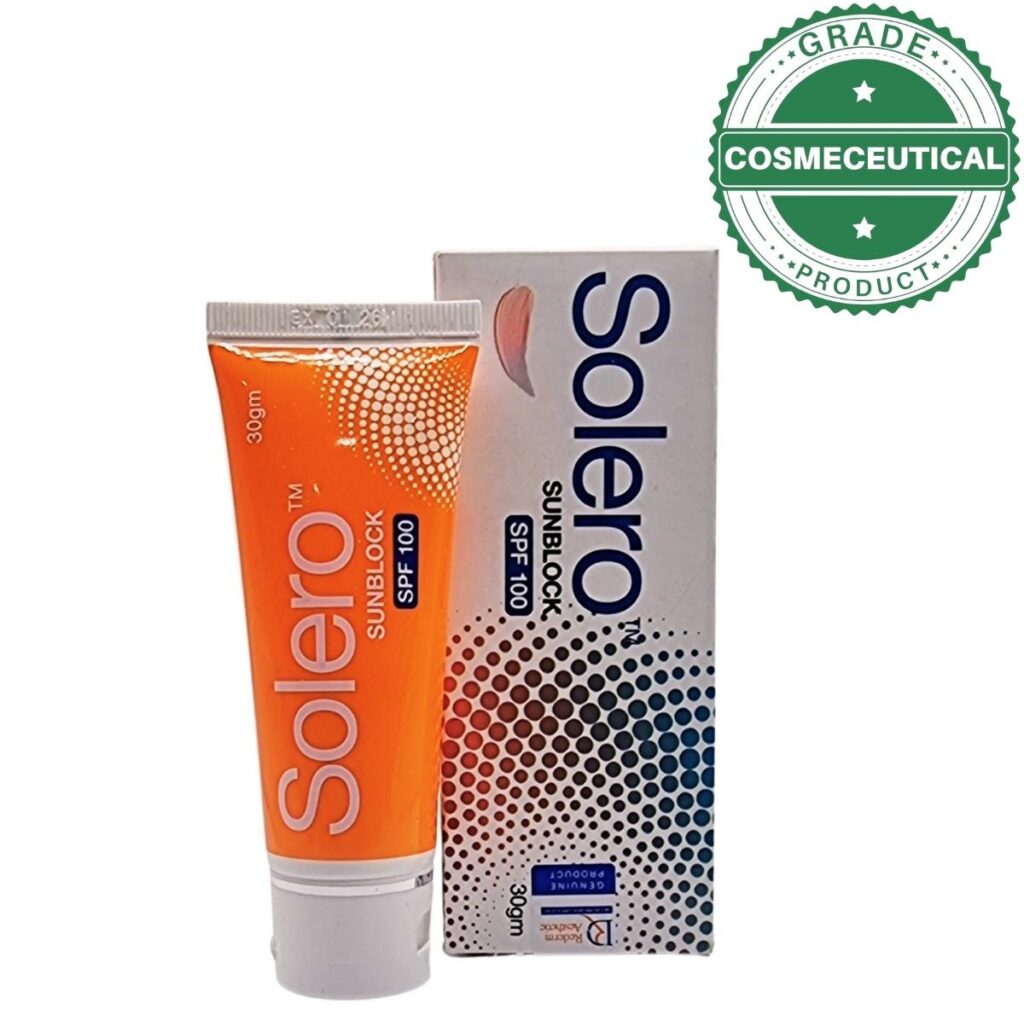Solero Sunblock: A Dermatologist’s Perspective

As a dermatologist, I see firsthand the damaging effects of the sun on skin. While sunshine provides essential Vitamin D, overexposure can lead to sunburn, premature aging, and even skin cancer. Therefore, recommending effective sun protection product Solero Sunblock is crucial for my patients.
Solero Sunblock offers several features that make it a compelling choice:
- Broad-spectrum protection: This is essential, as both UVA and UVB rays contribute to skin damage.
- Multiple SPF options: Catering to different skin types and activity levels is crucial. I often recommend SPF 30 for daily use and SPF 50+ for extended sun exposure, especially for those with sensitive skin or a history of sunburn.
- Water resistance: This is vital for those enjoying outdoor activities or sweating heavily.
- Non-greasy formula: Many sunscreens feel heavy and unpleasant, deterring people from using them regularly. Solero’s lightweight texture encourages consistent use.
- Skin-friendly: Gentle formulations are vital for people with sensitive skin or allergies.

While Solero Sunblock appears promising, here are some additional points to consider:
- Specific ingredients: Knowing the active ingredients (e.g., zinc oxide, octinoxate) can help me assess potential for irritation or allergies for my patients.
- Independent testing: Verification of SPF claims by reputable organizations like the Skin Cancer Foundation adds credibility.
- Personal experience: While reviews can be helpful, individual experiences with any product can vary. I encourage patients to try Solero Sunblock and monitor their skin’s response.
Remember:
- Sun protection is essential for everyone, regardless of skin type.
- Reapplication is crucial, especially after swimming or sweating.
- Sun protection is just one part of a sun-safe routine. Seek shade, wear protective clothing, and avoid peak sun hours.
Overall, Solero Sunblock has the potential to be a valuable tool in sun protection. However, consulting a dermatologist for personalized advice and considering the points mentioned above is crucial for making informed decisions about your skin health.
Dr.Eram Razzaq
Dr. Eram Razzaq is a highly qualified, PMC-verified dermatologist with over 15 years of experience in treating a wide range of skin and cosmetic concerns. She holds an MBBS and MCPS in Dermatology from the prestigious CPSP. Currently, she serves as a Consultant Dermatologist at Farooq Hospital West Wood Branch, Lahore, and Derma & Dental Clinic, Bahria Town, Lahore.
Dr. Eram is renowned for her expertise in managing skin diseases such as acne, eczema, psoriasis, and alopecia, as well as advanced cosmetic procedures including PRP, microneedling, lasers, Botox, fillers, and HIFU. Her dedication to excellence is reflected in her continuous participation in dermatology and aesthetic training programs. Dr. Eram offers a personalized approach to skin health and rejuvenation, ensuring exceptional patient care and satisfaction.
View All Posts



